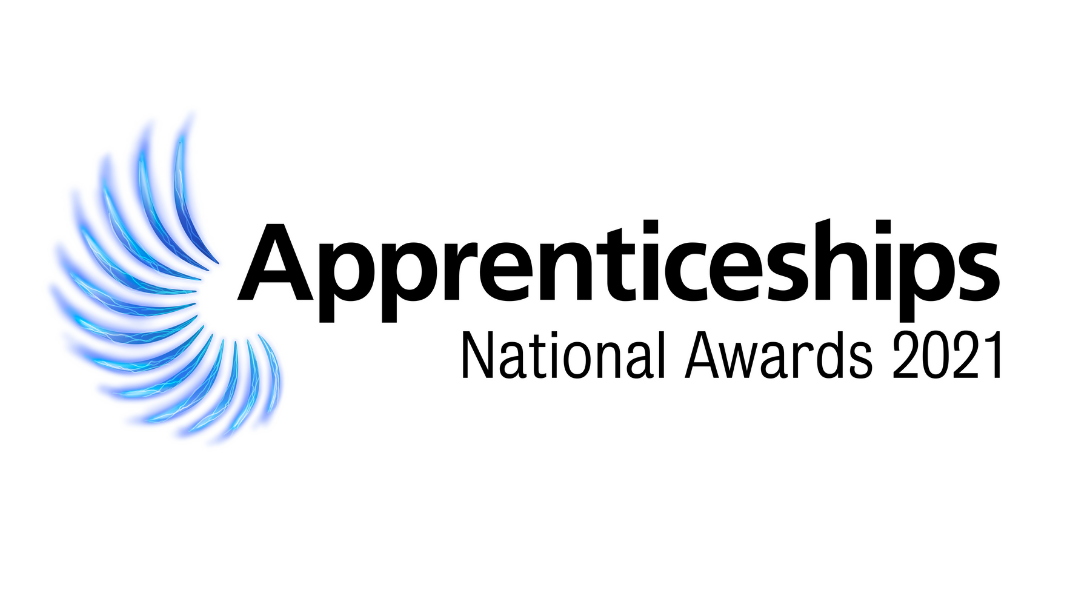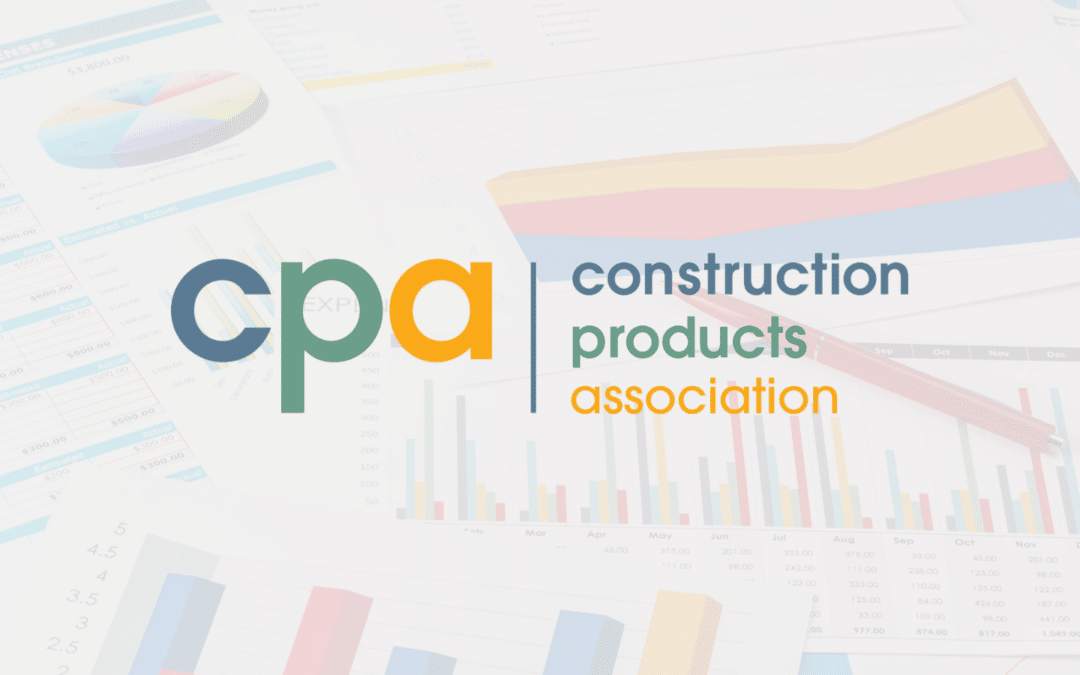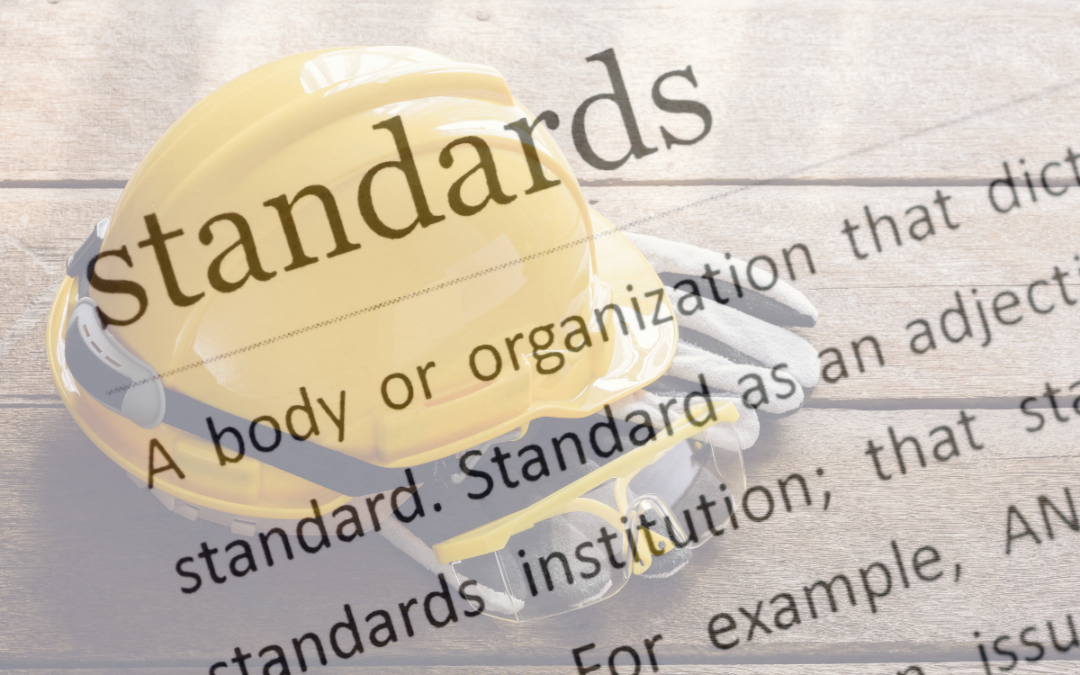
by Clair Mooney | 24 Jun, 2021 | Skills
The FIS Skills Board met to discuss all matters related to training and qualifications last week on Thursday 17 June 2021. The board comprises volunteers from membership and meets four times a year to:
- Guide FIS in support of the sector for all types of training and qualification outcomes.
- Guide the activities of the Training Group (FISTG).
- Support innovation and promote best practice in Training Delivery.
- Support the sector to ensure sufficient skills and knowledge for a competent workforce.
- Comment on and contribute to the content of qualifications and standards for the sector.
To provide information to members the associated documents and minutes of these meeting are available to view at www.thefis.org/about-us/skills-board/
There are some vacancies for employer members, if you would like to get involved or need more information please contact George Swann, FIS Skills and training Lead via email georgeswann@thefis.org or call 07553 874838.

by Clair Mooney | 24 Jun, 2021 | Skills
Calling all apprentices, employers, ambassadors and individuals who champion apprenticeships… the National Apprenticeship Awards 2021 will be open for entries from 5 July to 28 July 2021. It is free to enter the awards, and all entries must be made through the application website.
Back for their 18th year, the National Apprenticeship Awards are a fantastic opportunity to showcase the apprentices, employers and champions who have gone above and beyond, in spite of the challenges faced during the last year.
There are nine categories to recognise exceptional employers, apprentices and apprenticeship champions:
Employer of the Year categories
• SME Employer of the Year (for organisations with 1 to 249 employees)
• Large Employer of the Year (for organisations with 250 to 4,999 employees)
• Macro Employer of the Year (for organisations with 5,000+ employees)
• Recruitment Excellence (Selected from Employer of the Year award entries, and awarded to an organisation that has recruited a diverse and high quality apprenticeship workforce).
Apprentice of the Year and Apprenticeship Champion categories
• Intermediate Apprentice of the Year (level 2)
• Advanced Apprentice of the Year (level 3)
• Higher or Degree Apprentice of the Year (level 4 or higher)
• Rising Star of the Year* (Apprentices that have made impressive progress in their career to date, and have the potential to go even further. Nominations are made by their employer).
• Apprenticeship Champion of the Year (Individuals who go ‘above and beyond’ to champion apprenticeships. Nominations are made by a colleague or contact who recognises an individual’s ‘champion’ credentials).
*The Rising Star category will not include a public vote this year due to the condensed format of the awards.
Webinars to explain the awards process in more detail, including hints and tips on completing your application, will be made available on appawards.co.uk later in June.
Dates for your diary
Regional ceremonies will take place in October 2021, with the national ceremony taking place on Wednesday 1 December.
All regional winners will be recognised via virtual ceremonies, and national finalists will be invited to a ceremony in London.
Click here to find out more about the National Apprenticeship Awards 2021. In the meantime you can join the conversation on Twitter using @Apprenticeships and #AppAwards21

by Clair Mooney | 18 Jun, 2021 | Labour, Skills
The Financial Times this week reported on an exodus of EU workers from the UK that has left the British construction industry facing an acute shortage of labourers in some specialist trades. The article, which includes a quote from FIS CEO Iain McIlwee refers to a looming crisis for the government’s “build back better” strategy.
FIS and others have advised that unless urgent steps were taken, work on some projects could slow this summer. The article talks of a sector already under pressure because of an ageing workforce, a shortage of key building materials such as timber and steel as well as Covid-19 restrictions. Commenting on the situation Suzannah Nichol, chief executive of Build UK, called for a “more nuanced approach to immigration”. “There are already lots of pockets of shortages in specific trades and across particular spots in the UK,” she said. Employment in the construction sector fell from 2.3m in 2017 to 2.1m at the end of 2020, representing a 4% fall in UK-born workers and a 42% fall in EU workers, according to the Office for National Statistics. More than 500,000 UK-born construction workers are expected to retire in the next 10 to 15 years.
Iain McIlwee, Chief Executive of the Finishes and Interiors Sector trade body, went on to say that by the end of March, almost half of FIS members were reporting labour shortages. “It’s not so much that we can’t or won’t change and train or retrain UK workers but that the timescale is unrealistic,” he said. “There simply isn’t enough flex in the new immigration system.”
This issue was also discussed on Politics Today on the BBC, with Suzannah Nichol urging Government again to look at how we can manage evolution to a new normal and warning that there are still a number of unknowns surrounding summer travel and long-term settlement issues. Iain McIlwee of the FIS noted that whilst it was good to see the issue getting coverage, the response from the Home Office and ability to flex the immigration system was still disappointing. “My fear is that the debate about labour shortages that is impacting hospitality and other sectors is getting confused with the skills shortage that we are talking about in construction. There may be enough bodies in the domestic workforce, but there is more to delivering a skilled construction workforce than handing a former Debenhams worker a hard hat and calling them a dryliner – it takes time to adjust. In our sector we have an employment footprint of around 250,000 and around 40% (at the start of 2020) were from the EU. To make up for churn we need to recruit somewhere north of 3,000 new trade operatives a year. In terms of domestic workers we need to make up for the shortfall of 1,200 workers that we would historically have attracted from the EU and for every 5% that don’t lock in through the settlement scheme by the end of June, we need to find that number again. We need time to change the culture, build the training capacity and manage change. We lost last year to COVID, what we don’t need now is lectures on what we should have done (whilst adapting to COVID and trying to keep the economy going), but support and time to manage change.
FIS is keeping track of shortage issues and providing guidance to businesses via the FIS website here.
Catch-up on the recent FIS webinar on managing your business in a time of shortage here.

by Clair Mooney | 18 Jun, 2021 | Market data
The latest weekly update from CPA is available to members here. The updated issues are in Pages 1-4 of the weekly update including:
- ONS UK Retail Sales (May 2021)
- ONS UK Construction Employment by Gender and Occupation (2021 Q1)
- ONS/Land Registry UK House Prices (April 2021)
Subsequent pages have existing construction data that remain relevant.

by Clair Mooney | 18 Jun, 2021 | Technical
On Wednesday we hosted a webinar to review BS 8000-8:2021 Workmanship on construction sites – Part 8: Design and installation of dry lining systems – Code of Practice
The work began to formally review this code of practice in 2013, it has not been an easy journey and there are a number of similarities between this standard and BS8212 Code of practice for dry lining and partitioning using gypsum plasterboard Practice (1995) that needed to be taken into account, before it’s withdrawn.
After 20 years since the standard was introduced, much has changed in the sector and the review was driven by the need to provide better guidance for designers and to consolidate and provide a consistent approach to managing tolerances and a pressure on contractors to go beyond the standards and deliver even more exacting tolerances. This has led to reports of fallout in terms of retentions and delays caused by ongoing snagging. Completion of this work should provide a strong platform to focus a communications campaign from FIS reminding our clients, and those inspecting our work, how tolerance should be measured and managed.
The survey will be open for four weeks and the results will be fed back to the BSI committee who will also review the feedback from the public review.
A recording of today’s webinar is available here.
The revised standard will be available for public review later this summer, but ahead of this we are gathering your thoughts on the changes through an industry survey which you can find here.

by Clair Mooney | 18 Jun, 2021 | Labour, Skills
FIS has been working with CITB and the devolved nations regulators to make changes to qualifications available for the interiors and finishes sector. The requests included:
- New qualification development Drylining – Fire Resistant Walls, VR355 v3 Erect fire resisting walls and wall linings.
- New National Occupational Standard (NOS) for Operable Partition Walls ‘Service, maintain and repair operable partition wall systems’.
- Additional knowledge requirement, ‘how fire spreads through a building and how to impede it and protect the structure’
All of these changes have now been accepted in principle and should start appearing as amendment to qualification in late September 2021. Further evidence of consultation with employers is need for the new NOS Service, maintain and repair operable partition wall systems. Details of this work are available at Interior systems – CITB under ‘Reviews’. If you would like to contribute, please contact George, georgeswann@thefis.org or telephone 07553 874838.

by Clair Mooney | 16 Jun, 2021 | Sustainability
On 15 June, issue 1.0 of the Carbon Reduction Code for the Built Environment was been published on the Cambridge Centre for Smart Infrastructure and Construction (CSIC) website.
The Carbon Reduction Code for the Built Environment has been developed on behalf of the Construction Leadership Council (CLC) and is part of the Council’s Construct Zero initiative. The Code has been developed by the Achieving Net Zero Cross-Industry Working Group convened by CSIC. It is a first step to facilitate action towards reducing carbon emissions (CO2eq) related to design, construction, maintenance and operation of built assets.
Leading sustainability experts, industry and government representatives will be speaking at the online launch of the Carbon Reduction Code for the Built Environment, hosted by the Cambridge Centre for Smart Infrastructure and Construction (CSIC), at the University of Cambridge on 17 June.
The launch event will be introduced by Hannah Vickers, CEO, Association for Consultancy and Engineering (ACE), and Jennifer Schooling OBE, Director of CSIC, and will include short presentations by the organisations which are currently conducting trials of the Code including: James Wilcox, representing the National Association of Construction Frameworks (NACF); Kat Ibbotson, Net Zero Carbon Infrastructure Programme Manager at the Environment Agency; and Chris Hayes, Sustainability Operations Director, Skanska UK. Feedback from the trials, which are being conducted across different organisational scales, have helped to shape the development of the Code, which is broad in intent and designed for participating organisations to share experience and learn from each other.
“It is essential that our industry reduces carbon emissions and the more organisations that sign up to the Code the more we will achieve. Carbon reduction is much more likely to happen when all organisations within a value chain are committed to working together to reduce their footprint and save costs,” said Dr Jennifer Schooling, Director of CSIC. “Collaboration is the key to success, and with alignment across all parties we can progress towards the net zero carbon objective at the pace required. There are already many excellent examples of carbon reduction measures among our Achieving NetZero Cross-Industry Working Group and the Code builds upon these strengths to provide an encouraging, supportive and collaborative approach to reducing carbon.”
The launch event will feature short reflections on the trial and the Carbon Reduction Code given by Peter Yates, Regional Frameworks Director, Constructing West Midlands and Vice Chair, NACF; Charmaine Hughes, Programme Manager and Head of Frameworks (NWCH), Manchester City Council; and Fergus Harradence, Deputy Director, Construction, Department for Business, Energy & Industrial Strategy (BEIS) and also Stuart Young of BEIS. The hour-long launch event, which is free to register and open to all, will conclude with a Q&A with the speakers.
Visit the FIS Sustainability Hub for resources and supporting information that will support your journey to net zero.

by Clair Mooney | 16 Jun, 2021 | Sustainability
The Government has published a new Procurement Policy Note PPN 05/21, a National Procurement Policy Statement that requires contracting authorities in the public sector to ensure procurements support the delivery of wider strategic policy objectives as set out in the Social Value. For the first time the UK government has established a set of principles that all contracting authorities must have regard to when they procure goods and services, alongside any additional local priorities in their procurement activities. These principles include:
● creating new businesses, new jobs and new skills;
● tackling climate change and reducing waste, and
● improving supplier diversity, innovation and resilience.
The PPN also makes a clear statement that delivering best value over the life of the procured asset or service, rather than lowest cost, should be the objective of procurement exercises, and that procurers should take a broad view of what constitutes best value, reflecting policy as set out in the Green Book.
PPNs provide guidance on best practice for procurement for public sector organisations, together with supporting documentation. A PPN applies to all Central Government Departments, their Executive Agencies and Non Departmental Public Bodies in conducting procurement procedures regulated by the Public Contracts Regulations 2015.
Commenting on the publishing of this statement, FIS CEO, Iain McIlwee stated:
“It is good to see the vague coulds and shoulds of politicians turned into requirements in this statement. Procurement has to reward more than price – the Construction Playbook is a step in the right direction, this Policy Statement is another stride towards a heathier procurement culture that will support transformation in construction”.
You can read the Procurement Policy Note PPN 05/21 here
Vist the FIS Sustainability Hub

by Clair Mooney | 15 Jun, 2021 | Main News Feed, Material Shortages
With shortages dominating conversations, today, FIS hosted a webinar to help review where we all sit contractually.
To kick us off we were joined by Ruth Wilkinson, Legal Director at Hill Dickinson who discussed the challenges that businesses in our sector face, including:
- What is happening on the ground and the position that clients and contractors are taking on potential delays and price variation.
- Fluctuations and common provisions are made in standard contracts.
- How to deal with existing work and contracts.
- How to manage risk and structure negotiations on your next contract.
Damian James, Delay and Quantum Expert, then focussed on the impact of delay, distruption and rising costs and how to effectively manage your contractual position through this time of shortage.
Further support and guidance is below:
FIS Latest Statement on Shortages (to support your negotiations)
FIS Contractual and Legal Toolkit (including template resources to support notifications and management of delays)
RICS Conflict Avoidance Pledge (please consider signing it).
FIS Insurance Survey (Our plan is to scope out a new approach, possibly even establishing a mutual insurance company – all pie in the sky unless we have the data. We have received a good response, but have broken the project down into gateways and need a strong response before we can progress to the next level and start committing resource).

by Clair Mooney | 11 Jun, 2021 | Market data
The latest weekly update from CPA is available to members here. The updated issues are in Pages 1-5 of the weekly update including:
- ONS UK GDP (April 2021)
- ONS Construction Output (April 2021)
- HMRC UK Construction Products Trade with the EU (2021 Q1)
Subsequent pages have existing construction data that remain relevant.

by Clair Mooney | 10 Jun, 2021 | Skills
Build UK has confirmed that Open Doors 2021 is back and will take place from Monday 4 ‐ Saturday 9 October. This year will see a combination of site visits and ‘live’ virtual experiences.
Open Doors provides an opportunity for young people and those looking for a change of career to find out what the industry has to offer by going behind the site hoardings and seeing the diverse range of opportunities available. This year, Build UK has partnered with he Careers and Enterprise Company, Considerate Constructors Scheme and New Futures Network, to inspire as many people as possible to choose a career in construction.
A virtual workshop will be held on Thursday 24 June from 9am ‐ 10am for Open Doors Coordinators, where they will discuss plans for this year’s event in more detail. Your nominated Open Doors Coordinator should have received an invite.

by Clair Mooney | 10 Jun, 2021 | Main News Feed
Companies that deferred VAT payments between 20 March and 30 June 2020 and still have payments to make will need to join the Government’s VAT deferral new payment scheme by 21 June or pay in full by 30 June, otherwise they may be charged a 5% penalty or interest.

by Clair Mooney | 10 Jun, 2021 | Membership
The Construction Industry Joint Council (CIJC) has completed negotiations with trade unions GMB and Unite the Union and reached agreement on a 2.5% increase in all pay rates, which will take effect from
Monday 28 June 2021. Non‐taxable elements of pay, such as travel and subsistence allowances, will also increase, and the guidance on bereavement leave has been updated encouraging employers to now grant up to five days paid leave.
The Construction Industry Joint Council (CIJC) Working Rule Agreement – sometimes referred to as ‘The Pink Book’ – is an agreement between employers and Trade Unions setting out terms and conditions, including national pay rates, that are applied in principle by ‘adherent bodies’ and others across the industry. The aim of CIJC is to help avoid industrial disputes, and simplify the process of negotiating terms between employers and workers. In addition to standard rates of pay, not taxable expenses such as travel and accommodation costs, are incorporated into the agreement.
FIS is represented and the Board were consulted and fed vies in via our membership of Build UK. Other organisations involved in the negotiations include Civil Engineering Contractors Association (CECA), Home Builders Federation (HBF), National Access & Scaffolding Confederation (NASC), National Federation of Builders (NFB), National Federation of Roofing Contractors (NFRC), Painting & Decorating Association (PDA), Scottish Building Federation (SBF) and Trades Unions Unite the Union and GMB.

by Clair Mooney | 10 Jun, 2021 | Skills
From 1 June 2021 employers of all sizes in England can apply for extra funding to help them take on new apprentices. The boost to the apprenticeship incentive scheme was confirmed by the Chancellor in the Budget in March. Business can apply to claim £3,000 for each new apprentice hired as a new employer from 01 April until 30 September 2021. The cash incentive is designed to help more employers invest in the skilled workforce they need for the future as part of the government’s Plan for Jobs.
This is in addition to the £1000 available for:
- aged 16 to 18 years old
- under 25 with an education, health and care plan or who has been in the care of their local authority.
Employers can choose how to spend the cash, for example, covering uniform or travel costs for the apprentice.
In Scotland
£5,000 for employers taking on or upskilling a 16 to 24-year old apprentice, and for those aged up to 29 years who are disabled, care leavers and Minority Ethnic.
£3,500 for employers taking on or upskilling an apprentice aged 25 plus.
In Wales
Until 30 September 2021 businesses will be able to claim up to £4,000 for each new apprentice, they hire under the age of 25.
Skills and Training Lead George Swann said:
“Now is the ideal time to recruit the workforce of the future via apprenticeships. For more information on the options available to employers please see the FIS Apprentice – Guidance for Employers. If you would like to discuss this please give us a call we will be happy to help.”

by Clair Mooney | 10 Jun, 2021 | Skills
The road to a quality apprenticeship
The road to a quality apprenticeship has been published by Education and Skills Funding Agency (ESFA) to help employers understand the steps involved in delivering high quality, successful apprenticeships in their businesses.
A practical guide to aid employers of any size, The road to a quality apprenticeship provides links to information that employers can use to help them achieve a quality experience for their apprentices while maximising the benefits for their business. It will be followed by similar guides for end-point assessment organisations and apprentices.

by Clair Mooney | 9 Jun, 2021 | Sustainability
The Construction Leadership Council used the inaugural BMF Sustainability Forum to launch its new
Construct Zero website, which will provide a single hub for all information relating to the construction industry’s change programme in the Race to net Zero.
Hannah Vickers, CEO of the Association for Consultancy and Engineering (ACE) and the CLC’s Construct Zero lead, announced the website to delegates from the building materials supply chain attending the virtual meeting.
Hannah Vickers said:
“I’m delighted today to announce the launch of the new Construct Zero website, within the existing Construction Leadership Council website. Since its launch in March 2021, Construct Zero, as an industry-change programme, continues to go from strength to strength, gathering considerable engagement and support from Government, and across the breadth of the sector and beyond, for which we are very grateful.
“The website provides key details on Construct Zero including governance, consultation, events programme, a package of supporting resources for industry together with information on how companies can get involved with the programme as a Business Champion or Business Partner or both. The CLC looks forward to hearing from and working with you on this exciting industry change programme.”
Four BMF members were amongst the first 14 Business Champions announced by the CLC last month.
John Newcomb, BMF CEO, said:
“The CLC programme will stimulate collaborative behaviours across the supply chain and builders merchants and building materials manufacturers have a vital role to play in championing and delivering the changes necessary for success. BMF Business Champions are committed both to reducing the environmental impact of their operations and supporting others with their low carbon plans.”

by Clair Mooney | 8 Jun, 2021 | Fairness, Inclusivity and Respect (FIR)
A powerful new workers’ watchdog will be created to protect the rights of UK workers, the Government confirmed today.
Responsibility for tackling modern slavery, enforcing the minimum wage and protecting agency workers – currently spread across three different bodies – will be brought under one roof, creating a comprehensive new authority, which will ensure businesses that break the rules have nowhere to hide.
This “one-stop shop” approach will help improve enforcement through better co-ordination and pooling intelligence.
The new watchdog will also enhance workers’ rights by providing a single, recognisable port of call for workers so they know their rights and can blow the whistle on bad behaviour.
The body will support businesses to do the right thing by their employees by providing guidance on their obligations to staff. Meanwhile, increased enforcement will make sure good businesses aren’t undercut by unscrupulous rival employers who aren’t paying or treating their workers correctly.
As well as enforcing all existing powers belonging to the three agencies, the new body will have a new ability to ensure vulnerable workers get the holiday pay and statutory sick pay they are entitled to – without having to go through a lengthy employment tribunal process.
Business Minister Paul Scully said:
“This Government has been absolutely clear that we will do whatever we can to protect and enhance workers’ rights.
“The vast majority of businesses want to do right by their staff, but there are a minority who seem to think the law doesn’t apply to them. Exploitative practices like modern slavery have no place in society.
“This new workers’ watchdog will help us crack down on any abuses of workers’ rights and take action against companies that turn a blind eye to abuses in their supply chains, while providing a one-stop shop for employees and businesses wanting to understand their rights and obligations.”
The plans come as part of the Government’s wider efforts to protect workers’ rights. Since last year alone, the Government has boosted the minimum wage for around two million employees, protected furloughed workers’ parental pay, brought Jack’s Law into force to support bereaved parents, and more.
The Government’s plans will see the Gangmasters and Labour Abuse Authority, the Employment Agency Standards Inspectorate and HMRC’s National Minimum Wage Enforcement combined to create a single enforcement body.
The new body will continue the successful Naming and Shaming scheme, which calls out companies who fail to pay workers what they are owed and can hit rogue employers with fines of up to £20,000 per worker. This enforcement activity will be extended to cover other regulations protecting the pay of workers employed through agencies or by gangmasters in the agricultural sector.
To help businesses understand the rules, the new body will provide guidance on best practice, complementing the work already carried out by existing authorities such as the Advisory, Conciliation and Arbitration Service (Acas). It will seek to build strong links with community and worker groups to spread awareness and support engagement with at-risk groups, including the low-paid and those in sectors like construction and agriculture that could be at higher risk of abuse.
The Government will also explore further measures to target abuses in the garment sector specifically, following reports of serious problems in the industry. Options being examined include creating a Garment Trade Adjudicator to investigate companies’ supply chains, or extending the licencing scheme that currently covers employers in the agricultural sector. Under the scheme, businesses who provide workers for agriculture and the fresh produce supply chain must apply for a license to operate in the sectors, and are subject to inspections to ensure they meet employment standards required by law.
If brands’ behaviour doesn’t improve, the Government warned it could introduce harsher measures, including bans on goods made in factories where workers have been underpaid.

by Clair Mooney | 7 Jun, 2021 | Market data
According to the latest CPA update, the IHS Markit/CIPS UK Construction PMI for commercial was 64.4 in May, reflecting increasing activity since the start of the year, primarily fit-out work for offices and retail and leisure (preparing for opening/reopening) as restrictions ease.
The full update is available to members here.
The updated issues are in Pages 1-4 of the weekly update including:
- IHS Markit/CIPS UK Construction PMI (May 2021)
- IHS Markit/CIPS UK Manufacturing PMI (May 2021)
- IHS Markit/CIPS UK Services PMI (May 2021)
- HMRC UK Construction Furloughs (April 2021)
- BEIS UK Brick Sales (April 2021)
- Bank of England Mortgage Approvals (April 2021)
Subsequent pages have existing construction data that remain relevant.

by Clair Mooney | 7 Jun, 2021 | Fairness, Inclusivity and Respect (FIR)
The right health and wellbeing strategy can help organisations lower absence rates, increase productivity and improve employee engagement by showing they put their employees’ needs first.
Workplace health and wellbeing has been moving up the corporate agenda as more and more businesses now recognise the benefits of taking care of their employees. The pandemic has had a huge impact on how we are working and increased awareness of the importance of caring for employees’ mental health but it makes good business sense to develop and manage a broader, more holistic approach to employees health, safety and wellbeing.
With this is mind, Inspiring Chnage is hostine an online webinar on Wednesday 23 June at 10am to focus on creating happier, healthier, and more resilient workplaces, and will also touch on effective support pathways for people if they do become unwell.
You will hear from experts in their field about:
• The need for an effective wellbeing strategy.
• Solutions designed to improve employee health and wellbeing whilst contributing to better business performance.
• How employers can support those with long term illnesses.
Confirmed speakers include:
• Rachel Suff, Senior Policy Advisor, CIPD and author of CIPD’s Well-Being Report

by Clair Mooney | 6 Jun, 2021 | Main News Feed
Following a review of the red-amber-green travel list, the government announced on 3 June that Portugal is being removed from the green list and being put onto the amber list as of 8 June. That means that anyone traveling back from Portugal after that date will now have to isolate for 10 days upon their return. There were also seven more countries added to the red list.
Employers will have to carefully manage the self-isolation period for their people who may take international travel over the coming months. This free guide from FIS Associate Member Citation, covers the key considerations for employers, including whether travel-related quarantine is paid or not.



















